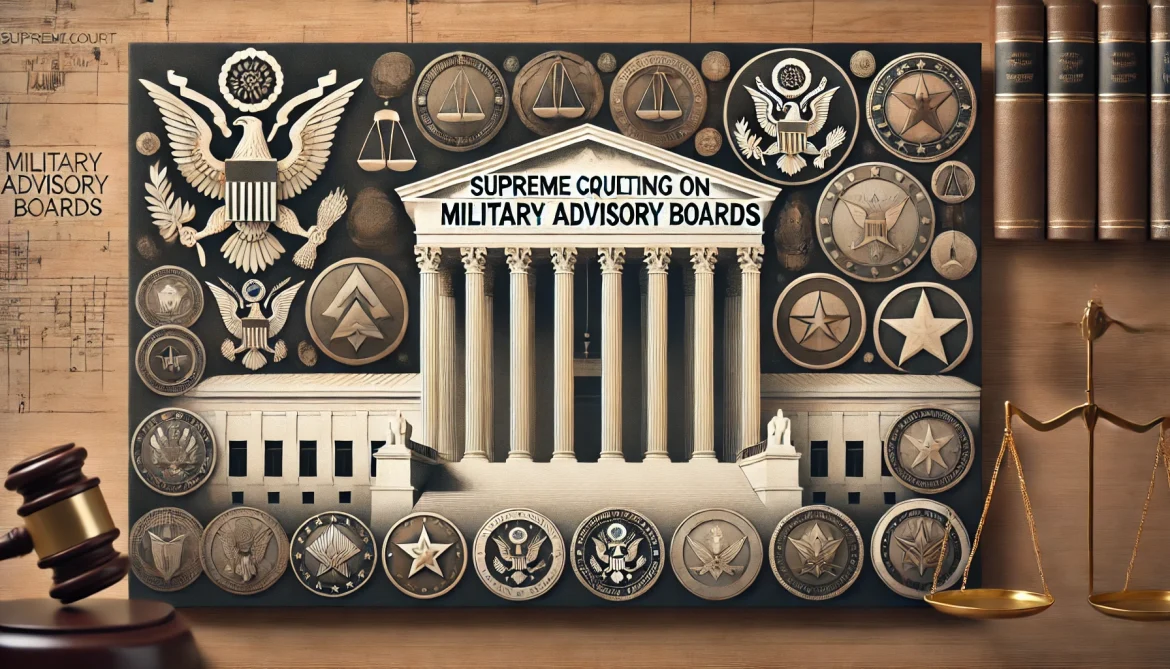The U.S. Supreme Court has declined to hear a lawsuit brought by allies of former President Donald Trump, who contested their removal from military advisory boards by President Joe Biden. The group of former board members argued that the Biden administration lacked the authority to terminate them before their terms expired and challenged the White House’s suspension of board operations in 2021. However, this refusal by the high court leaves in place the lower court rulings, which found that the plaintiffs lacked legal standing to challenge the administration’s decisions.
The case stems from a controversial decision made by the Biden administration in 2021 to remove 18 Trump-appointed members from several prestigious military advisory boards, including those at the U.S. Military Academy, Naval Academy, and Air Force Academy. The administration argued that the removals were necessary to maintain advisory boards that were in alignment with its values and policies. Critics, however, saw the move as a politicized sweep aimed at replacing Trump-era appointees with Biden-aligned individuals.
In their initial suit, the former board members claimed that Biden’s removal of appointed officials violated their rights, as they were appointed to fixed terms under the previous administration. They argued that, barring cause, the administration should not have the authority to terminate these appointments early. Additionally, the plaintiffs contested Biden’s decision to suspend the operations of military advisory boards temporarily, which effectively paused their work for several months.
However, federal courts at lower levels consistently ruled against the plaintiffs. The primary argument centered around standing: the courts found that the removed board members did not have the legal standing to challenge their removal, reasoning that the President holds broad authority to appoint and dismiss members from advisory positions that serve in an advisory, rather than an official, capacity. The boards, which provide non-binding guidance to military academies, are not integral to the administration’s decision-making or military command structure, which influenced the rulings against the plaintiffs.
The Supreme Court’s refusal to hear the appeal leaves the lower court rulings intact, effectively granting the administration significant discretion over such appointments and dismissals. This outcome reaffirms the executive branch’s authority in appointing advisors and has broad implications for future administrations. Legal experts suggest that the decision underscores a longstanding principle: advisory roles within the executive branch are generally subject to the current administration’s discretion, allowing for realignment in accordance with the president’s agenda and policy goals.
The Biden administration has defended its right to restructure advisory boards to ensure alignment with its values. Administration officials contend that the decision was necessary to restore balance and professional standards to advisory boards that had become “politicized” under the previous administration. Press Secretary Jen Psaki, at the time of the removal, defended the decision as part of an effort to ensure that advisory roles serve the administration’s objectives without being tied to prior administrations’ policies.
The plaintiffs, including prominent Trump allies such as former White House Press Secretary Sean Spicer and former Office of Management and Budget Director Russ Vought, voiced disappointment with the court’s decision. They argue that the removal of appointed officials midway through their terms disregards the purpose of fixed-term appointments and undermines the integrity of advisory boards. The group has expressed concerns that this precedent could allow future administrations to make similar moves, creating instability and a lack of continuity in advisory roles designed to last beyond a single administration.
The legal outcome underscores a significant limitation in the power of appointed board members and advisory figures, highlighting the President’s influence over advisory positions. This case reflects a broader conversation about executive authority and the potential for politicization within advisory roles, particularly in high-stakes arenas like military and national security advisement.
Legal analysts suggest that this ruling may prompt discussions about potential reforms to establish clearer terms and protections for advisory board members to prevent abrupt dismissals due to administrative changes. Until such reforms are enacted, however, the decision provides the current and future administrations with a relatively free hand to make changes to advisory boards, so long as the roles remain within the scope of advisory capacities.
As the Supreme Court’s decision stands, the Biden administration will continue appointing and maintaining advisory board members in line with its vision. This outcome solidifies executive authority over military advisory boards and reinforces the legal boundaries for appointed officials who may otherwise seek to challenge changes within advisory roles.
Image Source: ChatGPT AI



